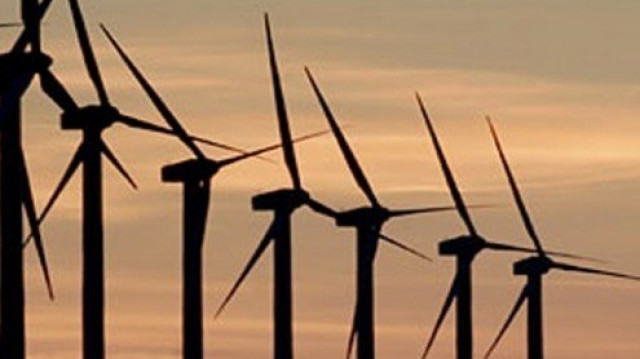Experts call for tackling energy, environmental crisis
Webinar speaker fears challenges can stall economic development

Energy sector experts have stressed the need for according equal importance to the country’s non-traditional security challenges such as energy and environmental crisis to ensure national security.
Speaking at a webinar titled “Nontraditional security challenges - energy and environment crisis” on Friday, they were of the view that by tackling energy and environmental challenges, Pakistan could boost its overall national security paradigm.
Sustainable Development Policy Institute (SDPI) Board of Governors Chairperson Shafqat Kakakhel said that the nexus among climate change, energy and security was well established.
According to him, the energy challenges and environmental crisis can stall the overall economic development.
Climate change and energy crisis could be countered by shifting to renewable and clean energy, he emphasised.
“Thousands of factories had to be closed due to the energy crisis and the government had to adopt coal-based energy,” he pointed out. “Now, we have begun to realise that the solution to the environmental and climate change crisis lies in developing and deploying clean and renewable energy.”
Speaking on the occasion, SDPI Executive Director Abid Qayyum Suleri called for making efforts to deal with the energy crisis in a manner that they could also address climate change issues.
Both the problems were intertwined and added to the non-traditional security challenges, which also included food security, human security and others, he said.
Suleri was of the view that the government was prioritising energy and environmental challenges and it needed to focus on improving the energy transmission and distribution system. “There is a need to introduce small hydro projects and a solar energy mechanism in remote areas, which are plagued by energy shortage,” he said. “By strengthening the institutional mechanism on energy and environmental challenges and by introducing clean technologies, the government can add value to the efforts aimed at combating non-traditional security challenges.”
World Bank energy expert Ermeena Malik discussed the general framework adopted throughout the world to gauge the modern energy system.
“The three main factors of the matrix are availability of energy, affordability of energy and sustainability of energy,” she said.
“All energy projects and assessments are basically based on these factors and they play a fundamental role in energy supply systems in countries across the world.”
Anything impacting these three components compromised the country’s energy security, she stressed, adding that all the three components had close linkages.
She called for enhancing investment in sustainable and renewable energy, adding that it was important to work on the transmission grid, transmission infrastructure and enhancing transmission capacity.
“Regions like Balochistan have immense potential for renewable energy, but they are not exploited. However, in Sindh, wind resources have been exploited to some extent,” she said.
“It is important to pay attention to transmission system of the country.”
SDPI Associate Research Fellow Hina Alam stressed the need for addressing the energy and environmental crisis in view of the ongoing human security challenges.
Ministry of Climate Change Director General Environment and Climate Change Muhammad Irfan Tariq said that the non-traditional security threats were quite visible, but they were neglected or not seen through the policy lens.



















COMMENTS
Comments are moderated and generally will be posted if they are on-topic and not abusive.
For more information, please see our Comments FAQ